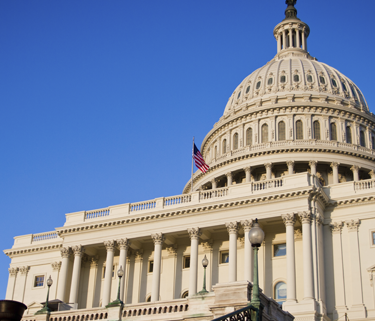Coalition of Civil Rights Groups and Legal Scholars Release Report on Intersectional Medical Discrimination During COVID-19
Washington, D.C. – Today, a coalition of civil rights groups and legal scholars announce the release of a new report: “Examining How Crisis Standards of Care May Lead to Intersectional Medical Discrimination Against COVID-19 Patients.” Crisis standards of care are used to decide who should receive priority for treatment when there are not enough resources to serve everyone. The report explores and addresses how crisis standards of care may perpetuate medical discrimination against people with disabilities, older adults, higher weight people, as well as Black, Indigenous, and other people of color, in hospital care. Many face pervasive negative biases and inaccurate assumptions about their value, quality of life, capacity to communicate and make decisions, and likelihood of survival. During this pandemic, these biases can have deadly consequences when hospitals must make decisions about which critically ill patients should receive treatment.
The report provides an explanation of crisis standards of care policies implemented by states and hospital systems and how they may discriminate against marginalized individuals and communities, the principles that should apply to prevent discrimination, the relevant civil rights legal framework, and recommended strategies to ensure that crisis standards do not discriminate during the pandemic or in the future. The report highlights the deaths of Michael Hickson—a Black father of five with multiple disabilities—and Sarah McSweeney—a white woman with significant disabilities—who were denied life-sustaining treatment by physicians who expressed clear biases regarding the value of their lives.
“This pandemic has highlighted existing health inequities and deeply entrenched medical biases that threaten the lives of marginalized individuals and communities,” said Peter Berns, CEO of the Arc. “The Arc has worked hard to advocate for individuals with disabilities during this pandemic and we hope that this report will educate a variety of stakeholders on how to prevent bias and stereotypes from seeping into the medical decision-making process.”
“This Report contextualizes our current historical moment and offers clear directives to ensure that race and disability remain at the forefront of short-term responses and long-term reforms,” said Professor Jasmine Harris with the University of California, Davis School of Law and a member of The Arc’s Board of Directors and Legal Advocacy Committee. “The current pandemic brought to the fore longstanding systemic inequities in healthcare, employment, and socio-political participation. Underlying health conditions—such as respiratory impairments like asthma, high blood pressure, and obesity—leave People of Color, disabled people, and BIPOC with disabilities particularly at risk for contagion and complications, including death. Yet these ‘underlying health conditions’ are not inherently personal, rather, they reflect institutional choices about access to healthcare, housing, food and environmental hazards—that, in turn, increase the risk for People of Color, disabled people, and BIPOC.”
“The history of medicine has long discarded the lives of disabled Black, Indigenous and other People of Color, and disabled BIPOC who live at the intersection of other marginalized identities,” said Professor Natalie Chin with the City University of New York School of Law and a member of The Arc’s Legal Advocacy Committee. “This Report provides medical professionals with a strategic roadmap to confront bias and ultimately improve healthcare outcomes so that we can firmly say, ‘Yes, all bodies are valued.’”
The authors of the report include the Bazelon Center for Mental Health Law, the Lawyers’ Committee for Civil Rights Under Law, The Arc of the United States, the Center for Public Representation, Justice in Aging, Disability Rights Education and Defense Fund, the National Disability Rights Network, the Autistic Self Advocacy Network, Professor Jasmine Harris of the University of California, Davis School of Law, and Professor Natalie Chin of the City University of New York School of Law.
Many of the advocates who authored this report have been involved in filing a number of complaints with the U.S. Department of Health and Human Services, Office for Civil Rights challenging medical discrimination by states and hospitals, including discriminatory crisis standard of care plans, no-visitor policies, and inaccessible COVID-19 testing sites. Through this work, advocates have reached resolutions with a number of states and hospitals that make significant progress toward preventing medical discrimination during COVID-19. However, as outlined in this report, much work remains to be done to ensure every individual, regardless of their identity, receives equal access to care during this pandemic and in the future.















